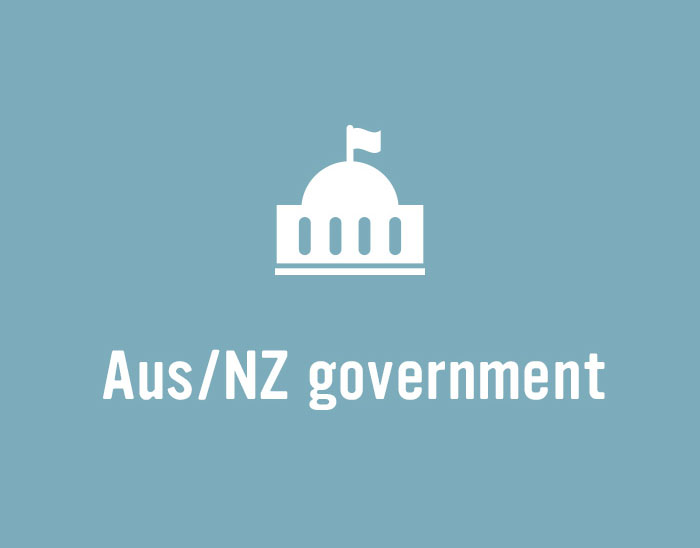
KiwiSaver change fuels fixed income debate
Debate is ongoing about the potential impact of New Zealand’s upcoming KiwiSaver reform. Some traders and investors are questioning the market’s ability to digest the resulting activity when funds shift into more equity-focused balanced strategies, though others are confident the impact will be negligible.
Reforms to KiwiSaver, New Zealand’s roughly NZ$87 billion (US$61.3 billion) pool of privately held retirement money, will shift default accounts into more balanced options from conservative funds on 1 December. The reform will also signal a change in default providers, with some AMP Capital, ANZ Investments, ASB, Fisher Funds and Mercer members automatically transferred to one of the newly appointed providers, which include Bank of New Zealand (BNZ), Booster, BT Funds Management, Kiwi Wealth, Simplicity KiwiSaver and Smartshares.
The change will trigger a wave of reallocations as former default managers required to shift members over sell out of fixed-income-dominant positions while the receiving KiwiSaver funds work to allocate their new members’ capital along different asset-allocation lines.
Jared Barton-Hills, credit trader at ANZ in Auckland, questions if the intermediary market has the capacity to take down the allocation change. Fixed-income markets are already volatile and the timing of the change is not ideal, he says – though he also acknowledges the outcome will depend on how it is executed.
“There is already a lack of secondary-market liquidity and that extends beyond credit into liquid government markets,” Barton-Hills tells KangaNews. The impact of the transfer is difficult to determine, with the type of fixed-income assets to be sold unknown. It will come down to individual fund choices, Barton-Hills says.
“If fund managers decide to sell short-dated government or other high-grade bonds, the net transition will be very easy because there is good demand in that part of the curve at the moment,” he explains. “If they wanted to sell long-dated corporate paper, it is going to be a lot more problematic.”
Barton-Hills suggests the best option for funds will be to aim the bulk of the transition through the most liquid points in the curve. But he says they might not have complete discretion to sell, for instance, two-year government bonds without changing their portfolio’s duration mix.
“Demand in certain parts of the curve will take up this transition easily but other parts will not. There will be an uneven effect across different assets,” Barton-Hills concludes
Another New Zealand fixed-income trader added there was also uncertainty about the exact number of accounts making the switch. But he is confident it is unlikely the changes will be a major event for fixed-income trading. “It is only equivalent to maybe one or two bond deals and we could probably soak it up as a single desk if we needed to,” he argues.
Change motivation
Grant Robinson, minister of finance, and David Clarke, minister of commerce and consumer affairs, announced the KiwiSaver changes on 14 May. The reforms seek to address an underlying issue with the scheme since its inception in 2007: the original default funds were geared towards conservative strategies.
The change aims to put more money into balanced options, which the government hopes will provide better returns over time and thus grow the national pool of retirement savings.
Andrew Lance, chief operating officer at Simplicity, tells KangaNews the Financial Markets Authority (FMA) has taken steps to ensure a fair transition free of market manipulation ahead of the transfer. The goal is clear but this approach is also creating uncertainty.
“The FMA does not want to see buying and selling ahead of time so no-one is in the privileged position of knowing when we are getting money in,” Lance explains. “The whole thing is going to be initiated by the entities that are predominantly selling bonds and transferring funds across to other entities that are going to be buying bonds and shares a few days later.”
Lance believes some of the larger funds losing their default status will be able to transfer assets internally, limiting the impact. While the regulator is aiming to minimise the shock, it seems inevitable that unitholders undergoing the transfer will shoulder some of the costs if there are adverse market moves during the transition, he adds.
Another New Zealand fund manager says there is still a great deal of uncertainty about how much money will pass between old and new default funds even a matter of weeks from the deadline. “What is certain is that there will be a settlement of fixed-interest assets and a purchase of equities over a timeframe,” he notes. “But no-one can tell what that timeframe or the dollar value of the transfer is.”
This fund manager says the change will likely be negligible for their firm. But smaller funds with less liquid assets could find digesting the extra capital harder. “However, we still do not know whether there will be a ‘big-bang’ approach or if it is going to occur over a significant timeframe.”
Additionally, smaller funds could find adding a large number of unitholders difficult from an operational perspective. “They have got to update their unit registering, communications and web sites to facilitate the massive increase in unitholders and all the administration that goes into this,” the fund manager says.
As one of the smaller funds gaining default status, Simplicity is most concerned about allocating the incoming funds as rapidly and prudently as possible, particularly in the equity market. Incorporating new member accounts should be seamless, Lance notes. Simplicity runs mostly passive strategies.
“We invest in the most liquid securities so we have no concern over the New Zealand bond market,” he explains. “The only market locally that is a little concerning is the share market. It's just not as deep and wide as it is in Australia or globally. But again, the volume we believe we are going to be transacting on any single day is not going to cause massive stress.”

WOMEN IN CAPITAL MARKETS Yearbook 2023
KangaNews's annual yearbook amplifying female voices in the Australian capital market.













